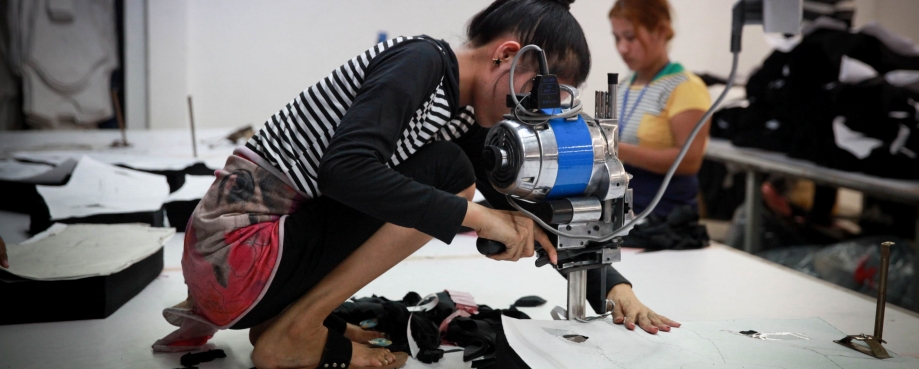
The Organisation for Economic Co-operation and Development’s (OECD) purpose is to promote policies that will improve the economic and social well-being of people around the world. Three ETI colleagues, Martin Buttle our Apparel and Textiles Lead, Emre ‘Eren’ Korkmaz, our Turkey Programme Migrant and Refugee Specialist and Ben Rutledge our Senior Advisor on Business and Human Rights were invited to the launch of its latest Guidance on Due Diligence in the Garment and Footwear sector. Here’s why that’s so important.
New advanced training course: Human rights due diligence
Most of the OECD’s 46 members are high-income economies.
However, the common thread of its work, to quote the OECD's website, “is a shared commitment to market economies backed by democratic institutions and focused on the wellbeing of all citizens.”
As such, it’s hugely influential worldwide.
The launch
The launch roundtable attracted at least 200 participants from governments, business, trade unions and the voluntary sector. And not only from OECD nations, but other countries as well.
The guidance itself focuses on human rights although it also includes chapters on the environment and corruption.
Martin and Ben report that it's very detailed and will be endorsed by all OECD member countries.
They also say that it will, arguably, constitute the most comprehensive and authoritative text issued on due diligence in the garment and footwear sector to date, recognising the industry’s importance to the global economy and the work that is needed to ensure workers benefit.
They believe it’s a resource that businesses will want to use because it’s so wide-reaching. Consequently, they are recommending it to ETI members and non-members alike.
Additionally, activists and unionists will find it useful because it’s being promoted as a 'gold standard' [Editor: see bullets below].
At the launch, Martin and Ben discussed how companies can carry out risk-based due diligence in accordance with the guidance and Eren led a discussion on the Turkish context.
In Turkey, ETI has set up a garment sector platform that brings together local and international companies and employers associations, trade unions and civil society to address how Turkey’s garment sector can benefit both Turkish workers and Syrian refugees.
Roll out
While the OECD is at the very beginning of the roll out process, both Martin and Ben report that its plans look very promising, with four steps already being mapped out:
- The guidance will be used to ensure policy coherence across member states. They hope it will set the gold standard for what due diligence is in the garments and footwear sector, and that governments will work with companies and develop public policies in line with it. While Martin and Ben acknowledge that this is an implementation tool and is therefore very unlikely to be a “formal commitment to meet” they still believe such commitment will be very useful.
- A repository for risk assessment tools is to be created. See also the OECD's Compare Your Country database which tracks trade flows in various commodities, which is helpful for tracking supply chains and mapping macro trends.
- The 2017 pilot initiative will focus on assisting small and medium-sized enterprises (SME’s) to use and implement the guidelines.
- Country programmes and grants will be developed to support implementation and their focus is currently being discussed. Martin and Ben were pleased to see that the Cambodian Ministry of Labour were present and requested support to trial implementation, as money and other resources are clearly available. China’s National Textile & Apparel Council were also present. They announced that they are establishing a Responsible Business Platform in China with the OECD. While the China platform is non-sector specific, mining and apparels will be the first priorities, and they will draft Chinese specific guidelines based on the OECD guidance.
For more information, this is the OECD’s blog on ‘How OECD’s new Due Diligence Instrument can transform the global garment industry’. And here’s a link to their web page which has lots more detail.
